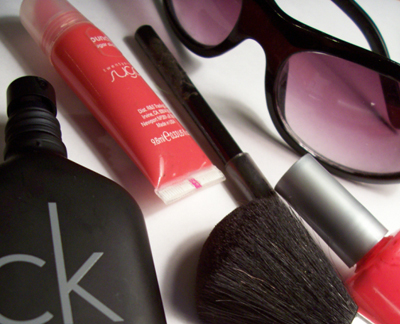All Nonfiction
- Bullying
- Books
- Academic
- Author Interviews
- Celebrity interviews
- College Articles
- College Essays
- Educator of the Year
- Heroes
- Interviews
- Memoir
- Personal Experience
- Sports
- Travel & Culture
All Opinions
- Bullying
- Current Events / Politics
- Discrimination
- Drugs / Alcohol / Smoking
- Entertainment / Celebrities
- Environment
- Love / Relationships
- Movies / Music / TV
- Pop Culture / Trends
- School / College
- Social Issues / Civics
- Spirituality / Religion
- Sports / Hobbies
All Hot Topics
- Bullying
- Community Service
- Environment
- Health
- Letters to the Editor
- Pride & Prejudice
- What Matters
- Back
Summer Guide
- Program Links
- Program Reviews
- Back
College Guide
- College Links
- College Reviews
- College Essays
- College Articles
- Back
Animal Testing
Beauty and the Beast - What You Need to Know About the Beauty Industry
The beauty industry generates over one billion dollars a year, companies promising flawless makeup, glowing skin, silky hair, and a bright smile. However, what exactly goes into these products, and are they compromising the well-being of you, animals, and the environment alike? And how do you know if you’re supporting a company that engages in shady activity? Read on to learn more.
Animal Testing
Many enterprises still test on animals, condemning them to a miserable life of pain, depression, and suffering. Maddeningly, said testing is proven to not be very effective because animals and humans react to chemicals differently from each other. We have found cruelty-free and efficient ways to test upcoming products, yet 115 million animals a year die from testing - including primates, dogs, hamsters, cats, rabbits, sheep, fish, and guinea pigs. The USA allows animals to be shocked, starved, burned, isolated, drugged, poisoned, and drowned. Some countries, such as China, even require animals to be tested on. So how do you avoid inadvertently supporting abuse? First, look for a cruelty-free sign on the product, then find out if the company is certified humane by PETA.
Compromising Your Health and the Environment
Some products that you think are helping you actually harm your health! Artificial fragrances, Parabens, Phthalates, and Toluenes cause hormone fluctuation, unclear skin, and damage to the immune system. You may think it’s safe to read the ingredients, but companies don’t have to disclose everything in their products - this is called a “trade secret.”
The chemicals included aren’t only damaging to you, but also the environment. Many washes contain plastic micro-beads to exfoliate the skin, and glitter is often made of plastic luster. Once this drains out of your shower, it leads to the ocean, flushing in uncalled-for pollutants. Enterprises also rely on plastic and styrofoam for packaging. A great way to limit your footprint is to buy shampoo, conditioner, and soap bars instead of bottles. The fewer ingredients the better. The list should be short and contain natural ingredients such as cocoa and shea butter, essential oils, fruits and vegetables, and limited complicated names.
Closure
Even though this all may sound alarming, thankfully, we have a choice. We vote with our dollars, and can choose as consumers to purchase mindfully. More widespread knowledge results in less damage, so share your favorite clean companies with your friends.

Similar Articles
JOIN THE DISCUSSION
This article has 0 comments.

For years, I have been deeply passionate about animal welfare and environmental health. Becoming vegetarian at age eight (and vegan at ten), one of my main "callings" in life is to draw attention to injustices against animals. I wrote this post about a year ago in quarantine; it is on my blog, Paws and Reflect.